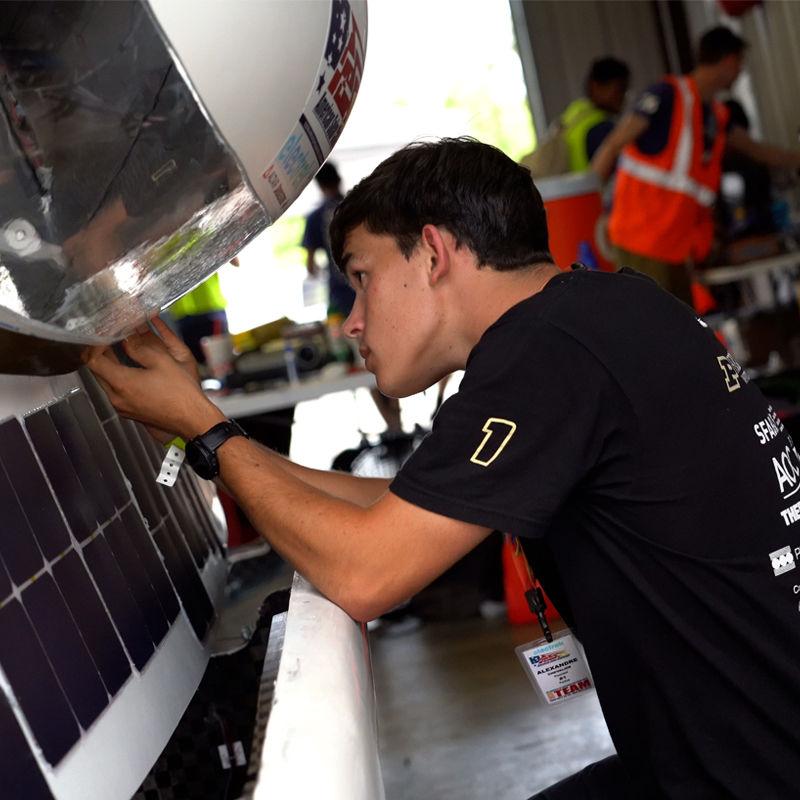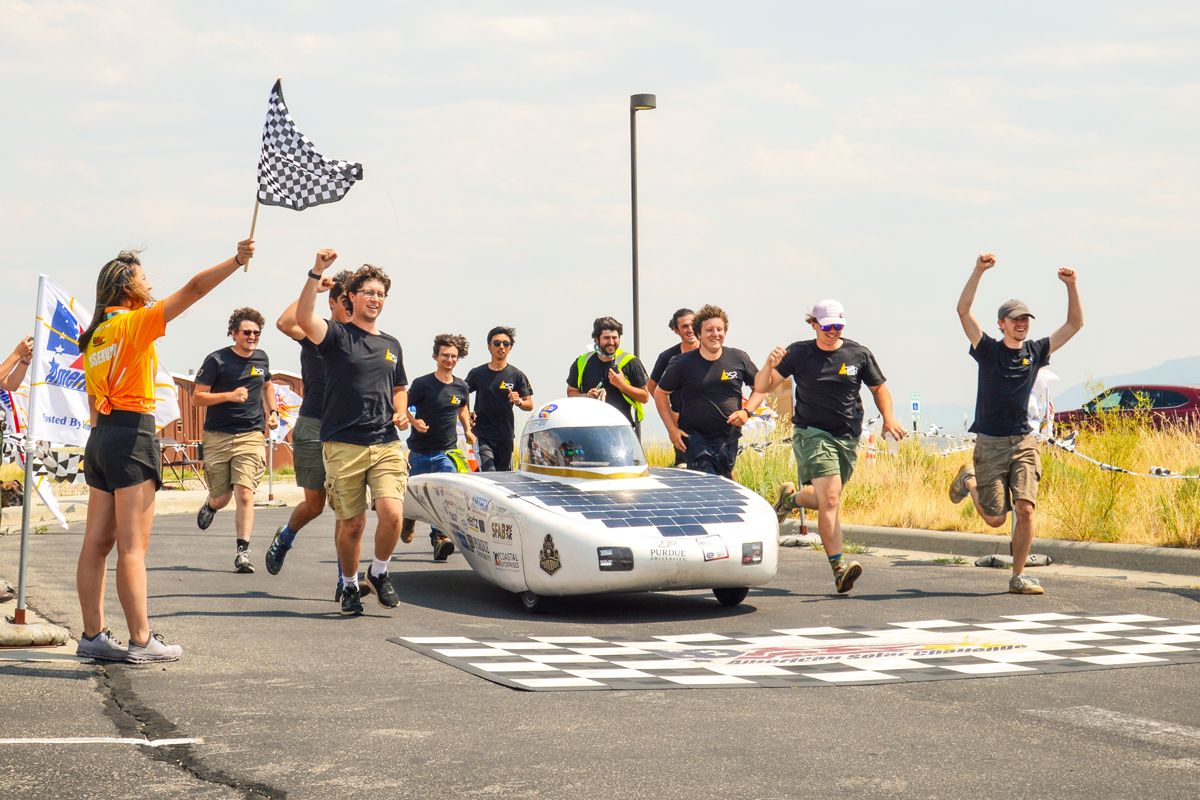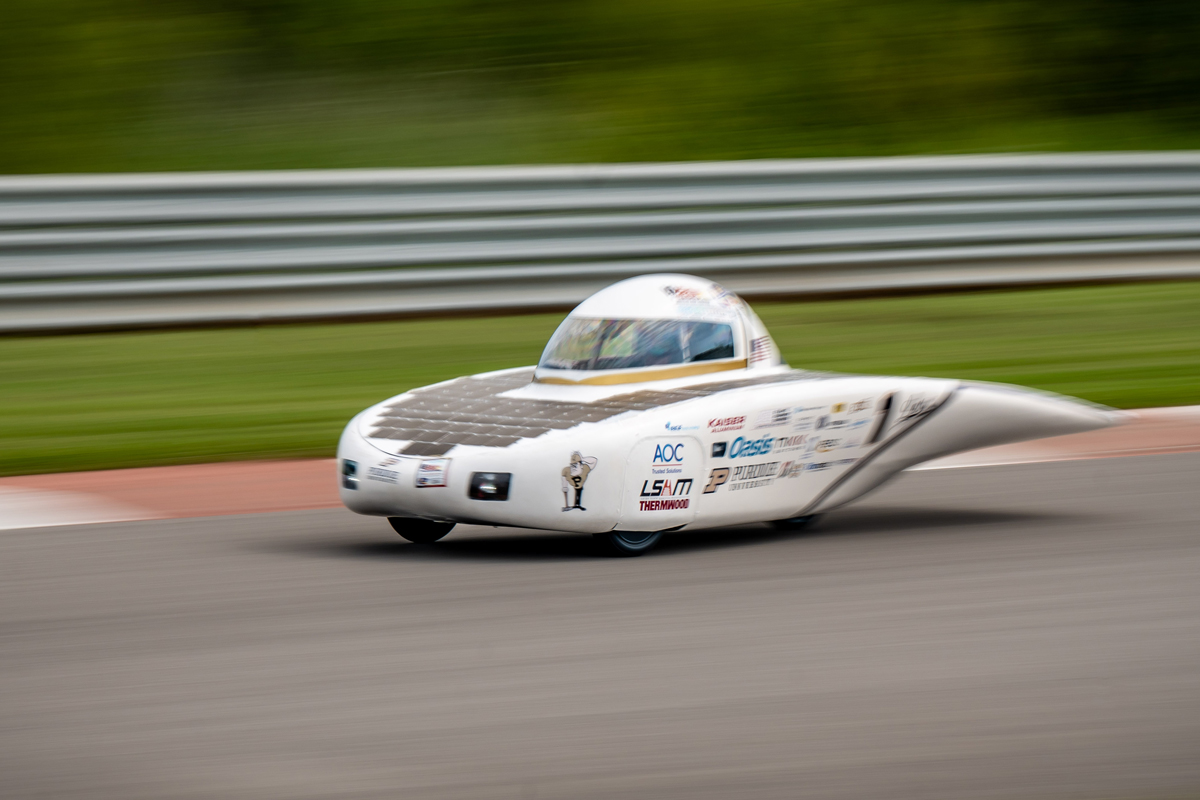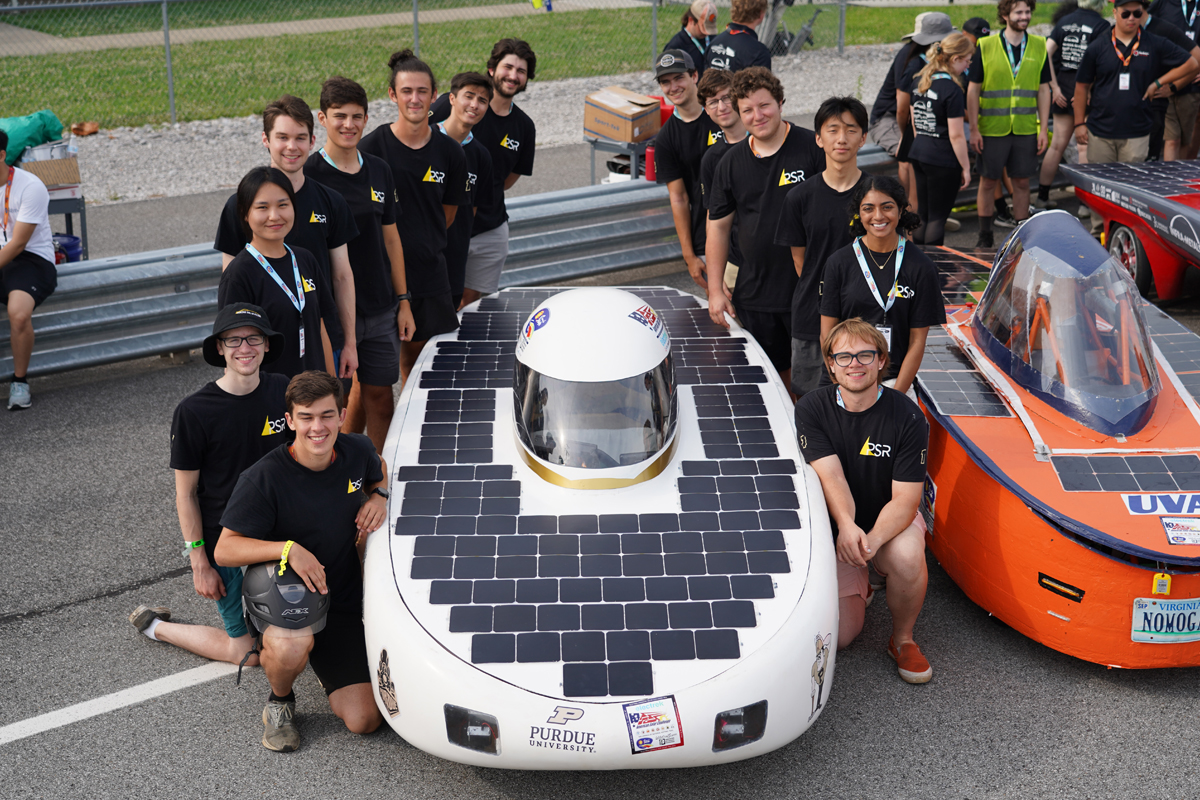Purdue Solar Racing on Track to Victory

In 1885, Karl Benz drove the first automobile. Though it only had three wheels and heavily resembled a tricycle, it was the birth of one of the most popular forms of transportation in the world. Since its genesis, the car has gotten faster, stronger and more efficient. Purdue Solar Racing is pursuing the next giant leap to unlock sustainable travel.
Purdue Solar Racing (PSR) is a team dedicated towards designing and building a greener future through sustainable transportation. Purdue Solar aims to build a solar vehicle each year to compete in races and progress our understanding of solar power.
"In order to keep traveling we need to find a better and more sustainable way to travel,” says Alexandre Chevalier, senior and former president of PSR. “A lot of the developments in the current world come from racing industries. The first steps of developing versus racing have different objectives. On PSR, we work to build our skills, work on new technology and sustainability and enhance our experiences.”
Creating the cars requires an extreme commitment from the team. The beginning of the process includes design, working out early logistics and obtaining sponsors. From there, the design for their first raceable car, Apollo, took eight months of engineering design and precision manufacturing.
“It’s impressive how committed people are,” Chevalier emphasizes, “People have stayed over their breaks to work on the car. People stay committed to it and that’s what makes the Purdue community so amazing.”
 In 2023, PSR built and competed Apollo, their first successful car since 2018. Apollo placed second in Battery Electric in the American Solar Challenge and is the team’s 11th vehicle built. Since then, the team has built Lux, their 2024 vehicle that successfully competed in this year’s challenge.
In 2023, PSR built and competed Apollo, their first successful car since 2018. Apollo placed second in Battery Electric in the American Solar Challenge and is the team’s 11th vehicle built. Since then, the team has built Lux, their 2024 vehicle that successfully competed in this year’s challenge.
The American Solar Challenge requires college teams to design, build and drive solar-powered vehicles in a cross-country time and distance race. The first part of the challenge involves passing an inspection to ensure the car is safe to drive. The inspections are incredibly thorough, as students’ vehicles are scrutinized statically before being inspected through dynamic events to check for breaking capability and high-speed stability. Once teams pass the inspection, they are admitted to the track.
The track event, the Formula Sun Grand Prix, is a grand prix styled racing event meant to test the limits of the vehicles to see how capable they are of handling acceleration, breaking and tight curves. The success Lux achieved in this round qualified them for the next challenge – the road event.
The road event, the American Solar Challenge, consists of 1,500 to 2,000 miles of cross-country racing and is a multi-day event. Vehicles are expected to travel 200-300 miles a day, racing the roads of Nashville, Tennesse in 2024 to beat the challenge and survive the race.
“We did it,” reminisces Chevalier. “We built a car; we drove it 60 miles per hour on a track and then we drove the roads. We did things that usually take 2-3 years in a single year.”

Having a car successfully complete such a difficult and complex challenge is a remarkable feat of technology and teamwork. Looking ahead, Purdue Solar Racing has bigger plans.
“Now that we’ve finished this car in one year, we are going to go back to American Solar Challenge with the intention to win,” says Chevalier. “The previous goal was to prove we could do it and now that is achieved and we’ve built up the resources required. We are shooting to win the 2026 challenge.”
Chevalier led the club to new highs, growing involvement from 5-10 members to over 100. As a senior, he plans to be one of the team’s greatest supporters, acting as a mentor to younger team members. In passing down the torch to this year’s new president, Gus Branoch, after 2.5 years of service, he reflects on his experiences.
“The support of family has really pushed us to be able to achieve great things,” says Chevalier. “The parents out there who help and are present for their sons and daughters are some of our huge supporters, as well as the people who believed in us early on. Purdue gave us the green flags to go, which meant we had nothing to stop us beside ourselves.”
 As an ever-growing team pursuing the next great challenge of securing first place victory, Purdue Solar Racing invites those interested to get involved. For more information, visit their website and join their DISCORD. General meetings occur on Tuesdays at 6 p.m. at the Bechtel Innovation Design Center, and Garage Meetings are Saturdays from 10 a.m. – 5 p.m., also at the Bechtel Innovation Design Center.
As an ever-growing team pursuing the next great challenge of securing first place victory, Purdue Solar Racing invites those interested to get involved. For more information, visit their website and join their DISCORD. General meetings occur on Tuesdays at 6 p.m. at the Bechtel Innovation Design Center, and Garage Meetings are Saturdays from 10 a.m. – 5 p.m., also at the Bechtel Innovation Design Center.
 .
.